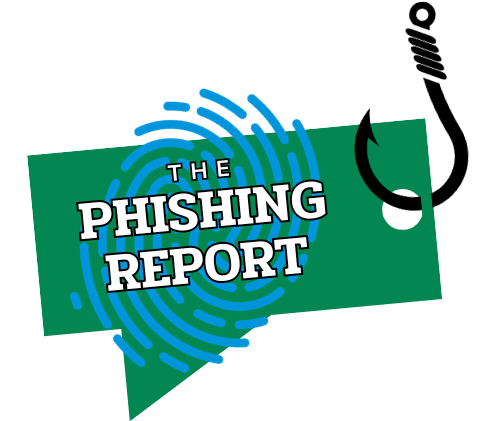You’d think securing software is as easy as pie, but the reality is far more complex. If you’re serious about enhancing your skills in secure software development, understanding the top certifications available can make all the difference in your career. From mastering the software lifecycle to ethical hacking techniques, these credentials not only validate your expertise but also prepare you to tackle real-world challenges. Curious about which certifications are worth pursuing and how they can elevate your professional standing? Let’s explore the top four that every developer should consider.
Key Takeaways
- CSSLP emphasizes secure coding principles and integrates security throughout the software development lifecycle, making it essential for secure software development.
- CISSP validates expertise in information security management, covering areas crucial for secure software architecture and engineering.
- CEH equips professionals with ethical hacking techniques, enabling them to identify and address vulnerabilities in software systems effectively.
- CompTIA Security+ provides foundational knowledge in cybersecurity principles, crucial for understanding risk management and secure coding practices.
- Continuous Learning through these certifications enhances professional credibility, marketability, and keeps skills updated against evolving security threats.
Certified Secure Software Lifecycle Professional
The Certified Secure Software Lifecycle Professional (CSSLP) credential is a prominent certification for individuals committed to integrating security practices throughout the software development lifecycle. As a CSSLP, you’ll gain a deep understanding of secure coding principles and how they impact software assurance. This certification emphasizes the necessity of embedding security at every stage of development, from initial requirements gathering to deployment.
You’ll explore critical topics such as threat modeling, secure coding practices, and risk management, equipping you with the skills to identify vulnerabilities early in the process. By mastering these concepts, you can notably enhance the security posture of your projects. The CSSLP framework encourages a proactive approach, ensuring that security isn’t an afterthought but rather a foundational element of software development.
Moreover, this credential helps you demonstrate your commitment to best practices in secure software development, making you a valuable asset in any organization. As cyber threats continue to evolve, the demand for professionals skilled in secure coding and software assurance will only grow. Earning your CSSLP not only solidifies your expertise but also positions you as a leader in the field of secure software development.
Certified Information Systems Security Professional
Achieving the Certified Information Systems Security Professional (CISSP) credential represents a significant milestone for professionals aiming to validate their expertise in information security management. The CISSP exam is rigorous, covering a broad spectrum of topics, including security and risk management, asset security, and software development security. To pass, you’ll need to demonstrate not just theoretical knowledge but practical application skills in real-world scenarios.
The CISSP benefits are abundant. First, it enhances your credibility and marketability in the cybersecurity job market, making you a more attractive candidate for roles that require a deep understanding of security policies and practices. Additionally, it fosters a thorough understanding of security architecture and engineering, which is essential for secure software development.
Moreover, achieving CISSP can lead to higher salary potential, as organizations recognize the value of certified professionals in mitigating risks and ensuring compliance. Networking opportunities abound as well, connecting you with a global community of security experts. Ultimately, pursuing the CISSP credential equips you with the skills and recognition necessary to excel in the ever-evolving landscape of information security.
Certified Ethical Hacker
A Certified Ethical Hacker (CEH) credential equips you with essential skills to identify and address vulnerabilities in systems and applications. This certification focuses on ethical hacking techniques that mirror the strategies employed by malicious hackers, enabling you to think like an adversary. You’ll learn how to conduct penetration testing effectively, simulating real-world attacks to uncover security weaknesses before they can be exploited.
The CEH curriculum covers a wide range of topics, including network scanning, systems hacking, web application security, and cryptography. You’ll dive deep into tools and methodologies that ethical hackers use, such as Metasploit and Wireshark, enhancing your practical skills. Through hands-on labs and simulations, you will build the proficiency needed to execute various penetration tests.
Moreover, the CEH certification emphasizes legal and ethical considerations in hacking, ensuring you understand the importance of conducting assessments responsibly. By obtaining this credential, you position yourself as a knowledgeable professional who can contribute greatly to your organization’s security posture. You’ll be better equipped to proactively identify vulnerabilities, thereby reducing the risk of security breaches and enhancing overall software integrity.
CompTIA Security+
Building on the skills gained through certifications like the Certified Ethical Hacker, CompTIA Security+ provides a solid foundation in cybersecurity principles and best practices. This certification focuses on fundamental security essentials, ensuring you understand the core concepts needed to safeguard software development processes effectively.
CompTIA Security+ covers topics such as risk management, cryptography, and network security, equipping you with the knowledge to identify vulnerabilities and implement appropriate measures. One of the key CompTIA benefits is its vendor-neutral approach, allowing you to apply your skills across various platforms and technologies. This versatility is vital in today’s diverse tech landscape.
Moreover, obtaining your Security+ certification signals to employers your commitment to cybersecurity excellence. It enhances your credibility, making you a more attractive candidate for roles focused on secure software development. You’ll also gain insights into compliance and operational security, significant for maintaining industry standards.
Frequently Asked Questions
What Are the Prerequisites for These Certifications?
You’ll typically need relevant professional experience in software development or security, along with foundational knowledge in programming languages and security principles. Certification requirements may also include coursework or training specific to the certification you’re pursuing.
How Long Does It Take to Prepare for These Exams?
Preparing for these exams typically takes several weeks to months, depending on your existing knowledge. Using effective exam preparation strategies and diverse study resources can considerably enhance your understanding and readiness, making the process more efficient.
Are These Certifications Recognized Globally?
Yes, these certifications have global recognition and align with industry standards. They’re widely respected, ensuring your skills are acknowledged internationally, which can enhance your career prospects in secure software development across various markets.
What Is the Cost of Each Certification?
When you’re considering certification pricing, each exam fee varies considerably. You’ll find costs ranging from a few hundred to over a thousand dollars, depending on the organization and the level of certification. Plan your budget accordingly.
How Often Do I Need to Renew These Certifications?
You’ll need to evaluate certification validity; most require renewal every two to three years. Renewal frequency can vary by organization, so check specific guidelines to maintain your credentials and guarantee ongoing competency in secure software development.
Final Thoughts
In today’s landscape, where cyber threats seem to emerge just as quickly as new technologies, obtaining certifications like CSSLP, CISSP, CEH, and CompTIA Security+ is more than an advantage; it’s a necessity. Imagine integrating security seamlessly into your development process, outsmarting potential attackers before they strike. By investing in these credentials, you’re not just enhancing your skills; you’re also creating a fortified environment that protects your applications, ensuring yours is a development culture where security is woven into the fabric of success.

